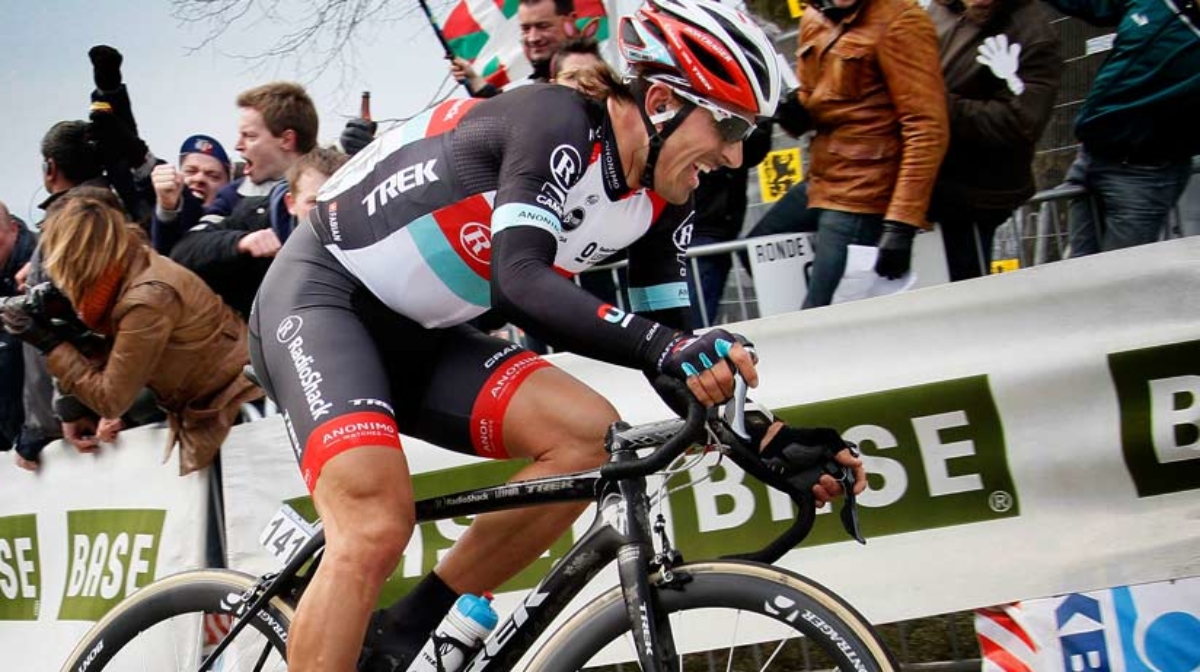Cyclists, as well as many other people that play sports, can sometimes wonder if what they’re doing is actually burning muscle. While the main aim of participating in any sport isn’t to build muscle, it’s to perform well, the question ‘does cycling burn muscle?’ is still often a concern amongst athletes.
If you take up a sport, you’re probably more likely than not the type of person who’s aiming for a state of health and well-being (besides enjoyment of your sport of course!). You’re probably at odds with your excessive love of the sport and staying in great shape. Now it’s obvious that us cyclists are never going to want to be bodybuilders, and building muscle isn’t something that we think about more than cycling, and that’s not the point of this article, but for those worried about looking emaciated after excessive bouts of endurance cycling, this will provide an insight on why this happens and how best to counteract it.
Does cycling burn muscle?
In effect, cycling does have the potential to burn muscle. This is through the endurance aspect of the sport, where long sessions and races are generally a little bit longer than the usual 1-2 hours of activity, and so under the basic rules of our biology, we will inevitably burn off more calories. The more calories burnt, the more muscle mass that is put at risk of breaking down and being lost.
Before you start thinking that a life of running, swimming and cycling will result in you looking like a mid-tour Michael Rasmussen, there are certain things you can do to help keep your existing muscle intact and retain a decent body composition that doesn’t immediately scream ‘hill climber!’
How can I minimise this muscle burning effect?
If you start to think about everything in terms of ‘calories in calories out’, it starts to become pretty simple. If you’re burning calories, you need to put them back in to maintain a certain weight. This seems relatively straight forward, but it’s important to remember what exactly you need to putting in your body and more precisely: when.
Eating more carbs around training
Now for any non-endurance athlete or amateur, a good tactic to prevent any unwanted muscle loss around training is to take in additional carbohydrates around training. This usually means adding in the extra carbs around key training sessions where the most calories are likely to be burned.
Because we’re talking about endurance sports and not a regular short-term sport, carbohydrates are going to be an extremely important part of your diet, providing you with most of your fuel to keep going. In a usual situation you would simply up the carbs around your workout, but as your ‘workout’ is a tough bike ride, and you probably eat a lot of carbs as it is, so you may need to up them a considerable amount. The idea behind this is that you’ll be burning all the excess carbs before the exercise can burn any muscle.
The carbs act as a sort of ‘safety blanket’ that your body can ‘dip’ into when it needs to burn calories, the more you up the blanket, the less chance you’ll have of getting to the muscle.
Recover with supplement and high protein meals
Post-workout is a vital time for preserving muscle while you recover, by immediately downing a recovery shake after your workout, you’re getting the full spectrum of nutrients in your body, without waiting to cook a full meal. Follow this up with a proper meal consisting of carbs and protein later on, and you’ll switch your muscle burning to a more anabolic environment.
So, do I just eat more?
Just to reiterate, eating more will keep hold of weight, but it’s not always the right kind of weight so be warned: keep your carbs clean and your protein up, this way you’ll be improving body composition rather than just preventing weight loss., which can actually be a good thing for cycling.
So to answer our initial question: does cycling burn muscle? Yes, but follow our tips above to retain muscle and avoid looking too emaciated!

